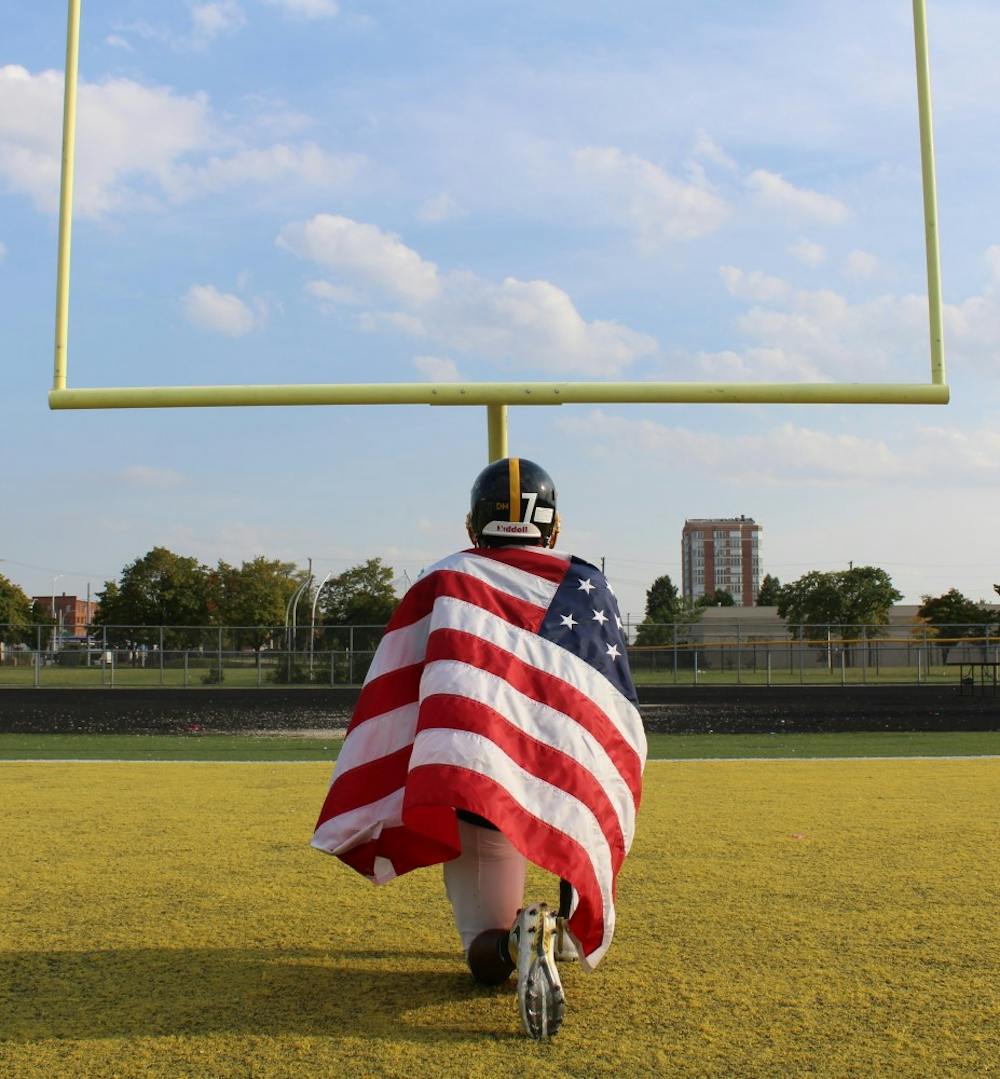Since the start of the U.S., African Americans and other minorities have experienced racial inequality and prejudice from fellow Americans. There have been several movements to gain racial equality for people of color. San Francisco 49er Colin Kaepernick reignited a social movement within athletics on Aug. 26 when he refused to stand for the National Anthem.
“I am not going to stand up to show pride in a flag for a country that oppresses black people and people of color,” Kaepernick told NFL Media.
The Fourth of July is deemed Independence Day for Americans, but some African Americans don’t feel that they can support the holiday because at that time many African Americans were still slaves.
“I support Juneteenth. That’s when my relatives gained their independence,” said senior, DeMarcus Taylor. “The Fourth of July, the National Anthem, and the United States of America flag, I do not support.”
Kaepernick’s stand, or rather kneel, against racial inequality has attracted negativity from Americans. People have burned his jerseys, called him disrespectful, and some believe he shouldn’t play again.
Protest in the past year, specifically from the Black Lives Matter group, has shone light on the corruption of some law enforcement officers. As a result, some men and women in blue aren’t comfortable with the statement Kaepernick made.
“I can’t support him after he took his stance,” said Dale Hopkins, a Detroit Police Officer for 18 years. “As professional athletes when they tour different cities, it’s law enforcement that protects them.”
Despite the criticism received, Kaepernick has obtained support from some people and has influenced other athletes to join him in his protest. Fellow NFL players and a coach, soccer player Megan Rapinoe, volleyball players from West Virginia Tech University, even high school football players have decided to take a kneel against inequality in America.
“They never say the second verse in the National Anthem,” said junior basketball player, Faith Priester. “They have us stand up to this song and no one really knows about it. Now that I know I will not stand up for it.”
Though this is a new means to gain racial equality, it is not the first. During the 1968 summer Olympics in Mexico City, gold medal sprinter Tommie Smith and bronze medal sprinter John Carlos stood proudly on the medal podium, bowed their heads, and raised black gloved fists as America’s National Anthem played. Smith and Carlos raised their fists to “bring attention to the inequality in America”.
“I would go back even further to Muhammad Ali and his stance against the Vietnam War and boxer Jack Johnson who tried to break down interracial walls,” said John Mayberry, basic law teacher. “I think all of these type of things are in line with what Colin Kaepernick is doing.”
This isn’t the first fight for equality in America, nor will it be the last.
“The methods may change or the people may change, but it will always be the same concept,” said Taylor.



